Earlier this year, in search of a new hobby, I took an Amateur radio course (also known as ham radio) and received my license about a month ago. Amateur radio is all about non-commercial communication over radio waves. Most consumer walkie-talkies (like ones using the FRS) work only over several kilometers in the best of conditions. Believe it or not, Amateurs are able to use equipment to communicate all over the world, and even into space contacting the International Space Station using radio frequencies. This kind of communication was probably more popular decades ago when there was no Internet, or cheap long distance phone calls. However, Amateurs still involve themselves in activities such as contests contacting the most people, and on a more practical level (at least to me) emergency and volunteer event communications.
So putting my new license into use, last Sunday I helped out with the Vancouver Sun Run as an Amateur Radio operator. With about 80 other Amateurs, we were positioned in pairs along the entire 10km route.
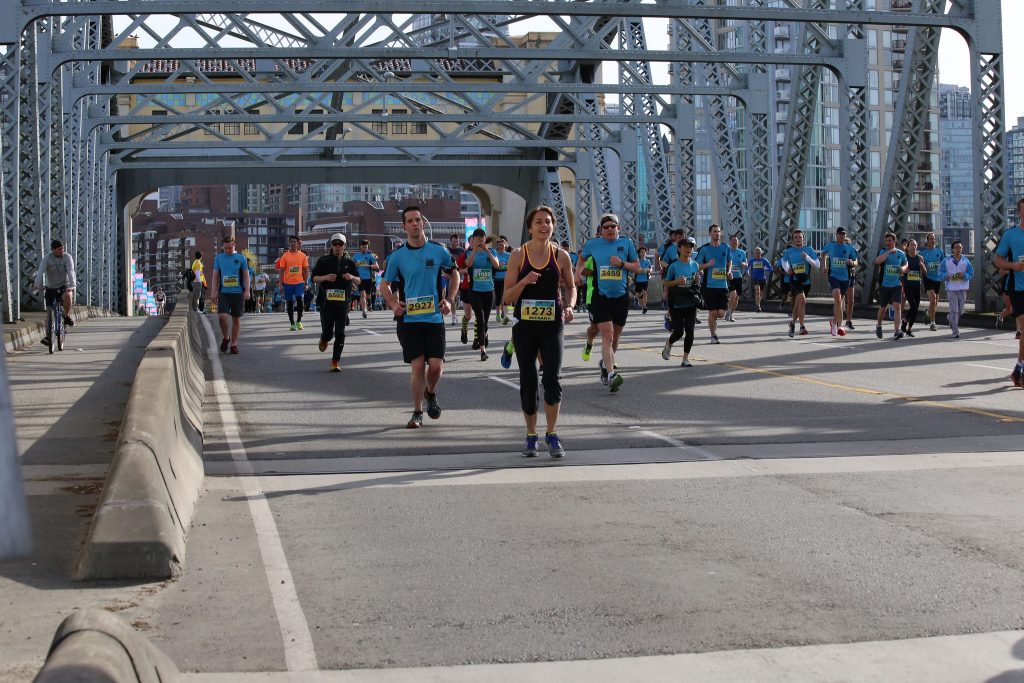
For operators in the field, depending on the position, there are different roles to do. We provided the eyes and ears for “net control” (the communications base) along the entire route, and helped any runners who needed assistance. Selected stations were in charge of reporting the first participants so that the announcer at the finish line could keep the crowd updated with the race progress. If there were any issues along the route, we could call in to alert the logistics team. If any children were lost, we could call in to arrange transportation for them to the “Lost Kids” area to be reunited with their parents. Most commonly though, would be calling in to report an injured runner that required medical attention or transport.
Other Amateurs were also stationed in the medical tent to receive these requests for medical attention and helped coordinate dispatching the medical teams or ambulances along the route.
I was lucky enough to be positioned mid-span on the Burrard Street Bridge. With the awesome weather, it was a very nice station to be at.
At around 8:00am I made my way onto the bridge, and checked in with the “net control” operator of our presence at the station.
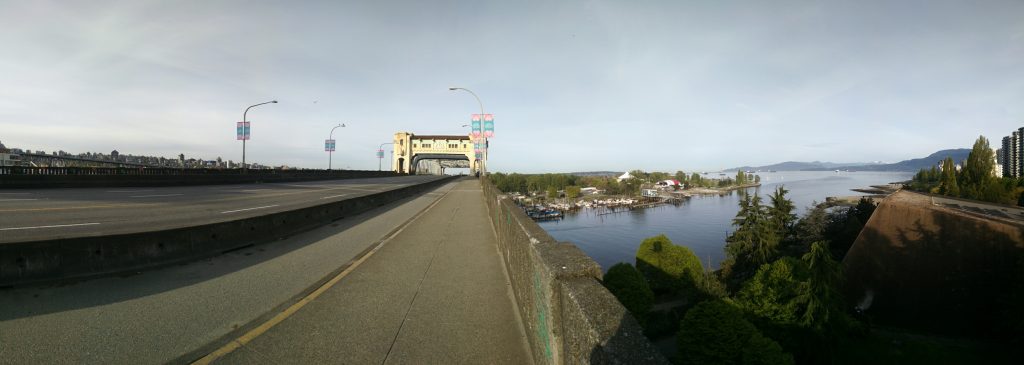
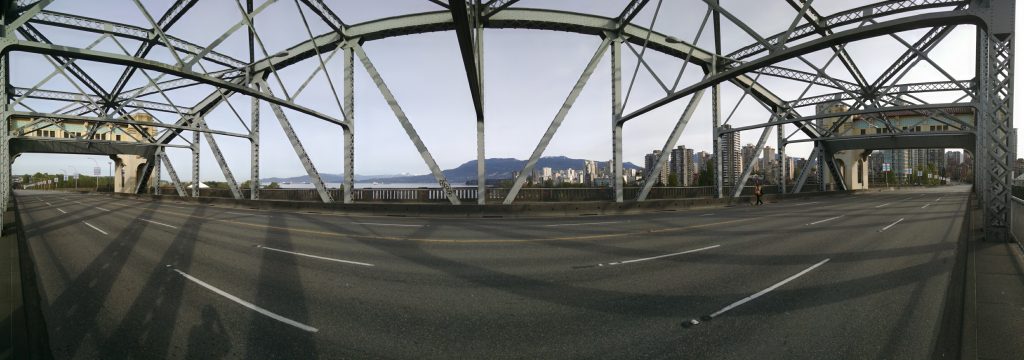
Just after 9:00am, we saw the competitive wheelchairs pass by, then the elite women, then the elite men. Slowly more and more people started trickling onto the bridge, and soon after the bridge became packed with runners!
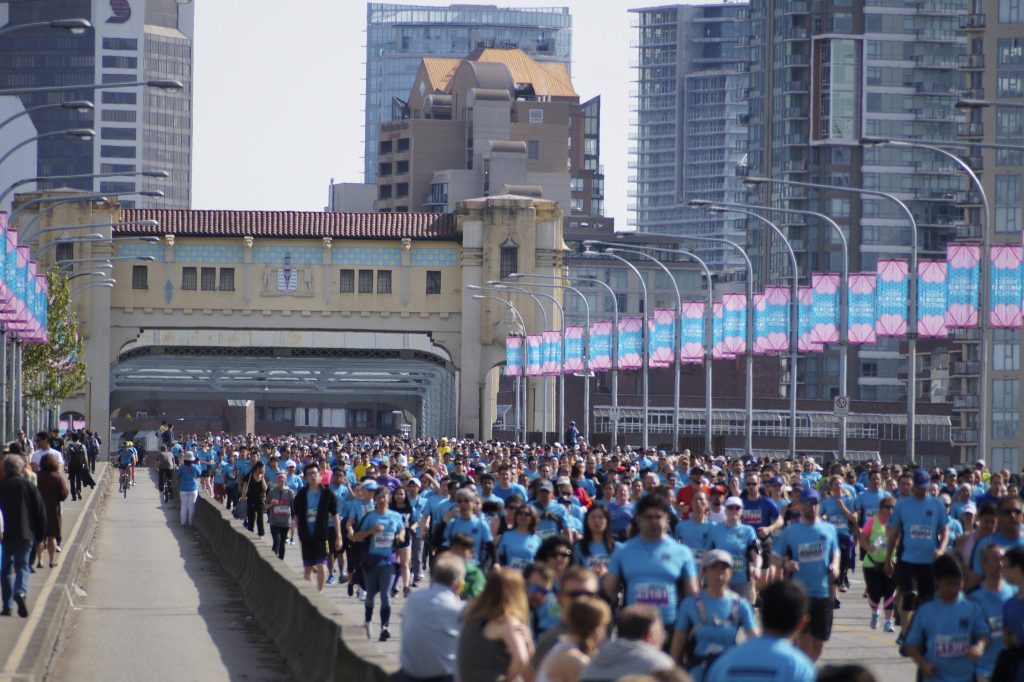
And then a while later, the crowds of joggers started to transition into a crowd of walkers. Then finally the crowds of walkers died down as well to a trickling of walkers. We then waited for the sweep vehicle, which drove behind the last walker. Once the sweep vehicle went by, we called in to “net control” to request to stand down from our positions.
It was really interesting to see the cross section of the Sun Run standing from one location from start to finish. We were lucky that the Burrard Bridge was a pretty injury-free area; we didn’t have to call in any medicals from our location. It was a nice first experience to interact with some of the other Amateurs in the city. There are a lot of different cool things that can be done as are part of the Amateur radio hobby, and providing event communications is only the tip of the iceberg. I’ll probably blog more about it as I dig further into the hobby.
Dennis VA7DTT

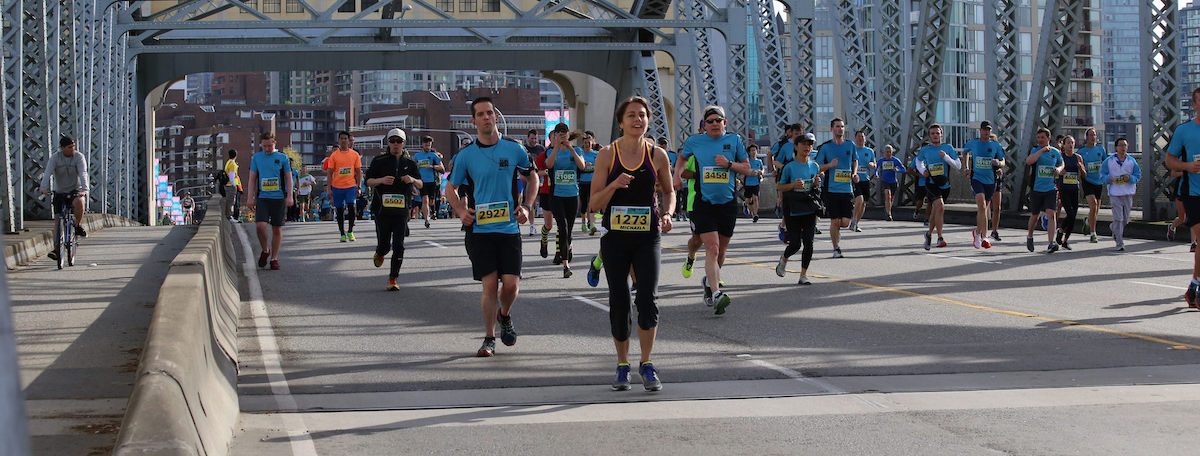
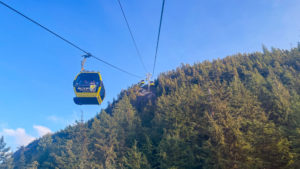
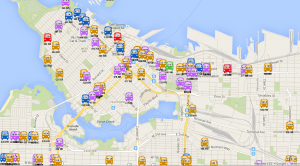
What would a set up of such a hobby cost? I have been trying to get a license but don’t want to pay a fortune for something like this!
Hello George,
The amateur radio hobby is very diverse, so it would depend on what your particular interests are in.
Licensing: To get the basic licence, you can self-study and then do the test through an examiner, or you can go through courses at a local club, who will normally also include the final exam and certification costs, for around $100.
Equipment: If you’re only using the radio within a short distance, or have some repeaters in your area, a very basic handheld transceiver can cost from $70. If you’re looking for a longer distance transmission with a desktop unit and outside antenna, or a mobile rig for your car, those will cost more, but I haven’t ventured down that route yet so I can’t give you a quote. A lot of the equipment you may be able to find used from a local amateur radio club; look out for swap meets and such where used equipment is sold or traded by other members.